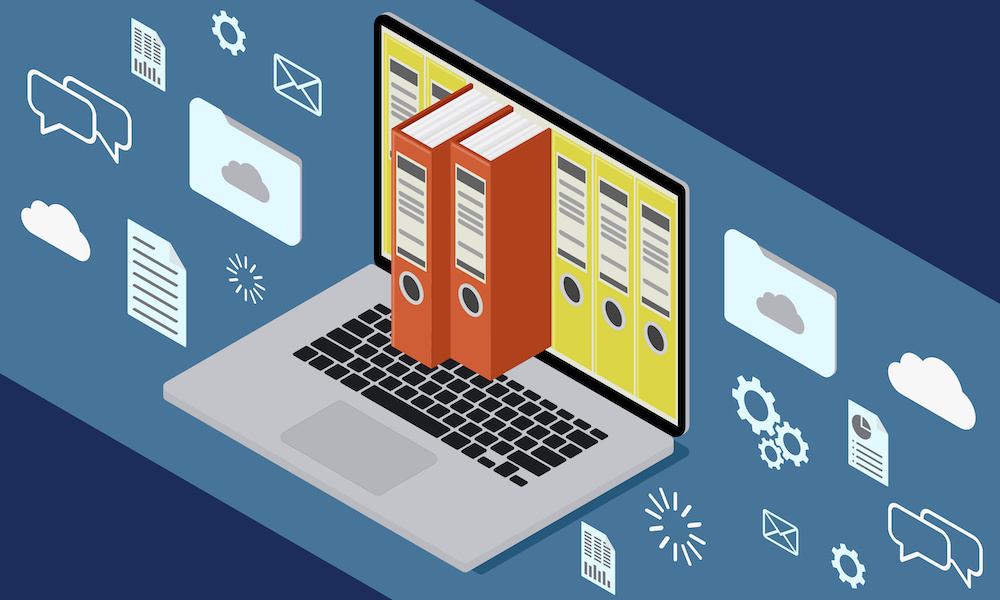Piles of paper on desks, letters, invoices, receipts and other documents filling filing cabinets and entire archive rooms - this image is increasingly losing its relevance as digitization progresses. The electronic document is displacing physical written media in many areas and has already streamlined document management. At the same time, however, digitization has also brought new challenges: How can digital documents be archived securely? How can they be used across departments? How can a document be prevented from disappearing into a subfolder and becoming untraceable when it is urgently needed? The solution is a digital document management system (DMS), which offers numerous advantages, especially for medium-sized companies. In this article, we want to take a closer look at these.
What is a DMS?
DMS stands for Document Management System and is software that helps companies organize, manage and store documents. The system allows users to create, edit, store and share documents and ensures that they are secure and easily accessible. In addition, access and sharing of documents can be controlled. By "documents" is meant not only text files such as Word documents, PDFs, e-mails, Excel lists or scanned written documents, but also images and audio and video formats.
What are the advantages of a DMS for medium-sized companies?
Efficiency increase
When a company uses a DMS, employees can organize and find documents faster and more efficiently. Instead of wasting time searching through physical documents or scouring emails for document attachments, employees can simply search the DMS system to quickly find the documents they need. For example, a marketing team can access previous campaign plans with just one search command, without wasting time on manual searches.
Cost savings
A DMS helps save costs on paper, printing and storage. Instead of printing, copying and archiving physical documents, documents can be stored and shared digitally.
Improved collaboration
A DMS improves collaboration between teams by enabling seamless use of documents. It ensures everyone is always working with the latest version. Customer quotes can be easily shared between sales and marketing teams to get feedback and create marketing materials
Higher data security
A DMS also offers companies greater data security by providing control over access to confidential documents. When the finance department stores sensitive documents such as payroll or tax returns in the DMS, confidentiality is ensured through authorization. The system also makes it possible to log changes to documents and track who made changes to which documents and when. In this way, the integrity of documents can be ensured and it is possible to track who is responsible for which changes.
Compliance
A DMS also makes it easier for companies to adhere to compliance rules and legal regulations. If a company has a lot of highly sensitive data, as is the case in the medical sector, for example, a DMS can ensure that it is archived in compliance with the law and that only authorized persons have access to the data.
Conclusion
A DMS offers midsize companies many advantages that have a positive impact on business processes. Efficient document management, improved collaboration, high security and data protection, cost savings and scalability are just some of the reasons why a DMS is a sensible investment for mid-sized companies.

